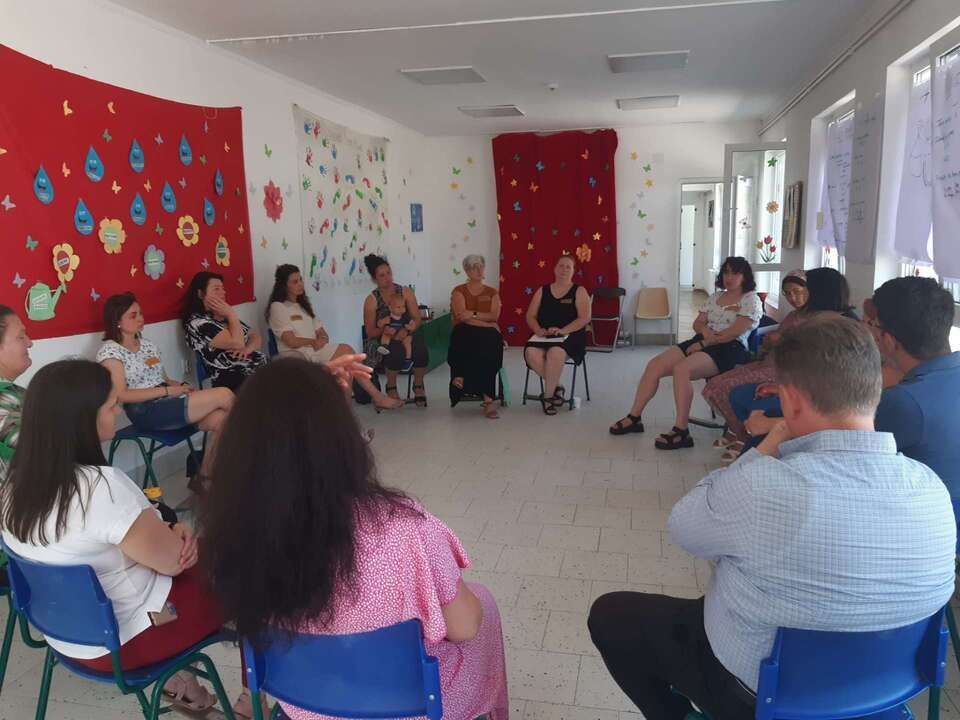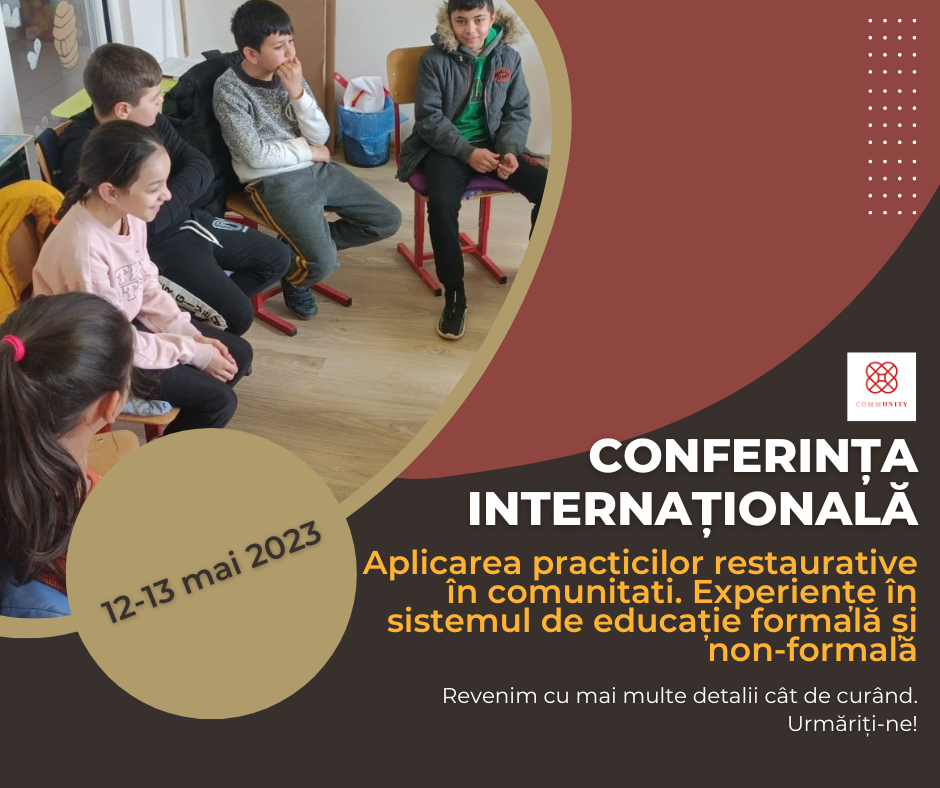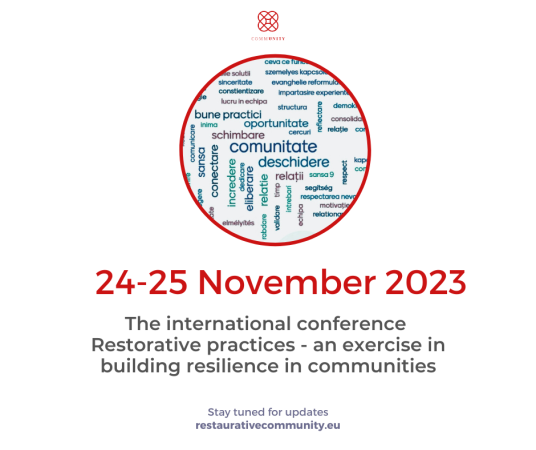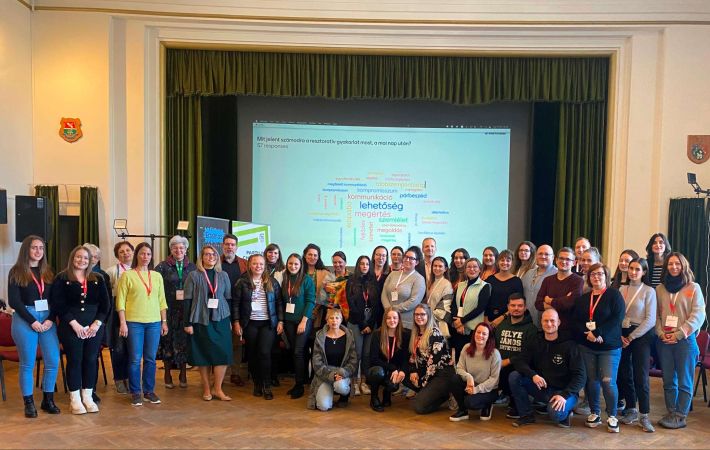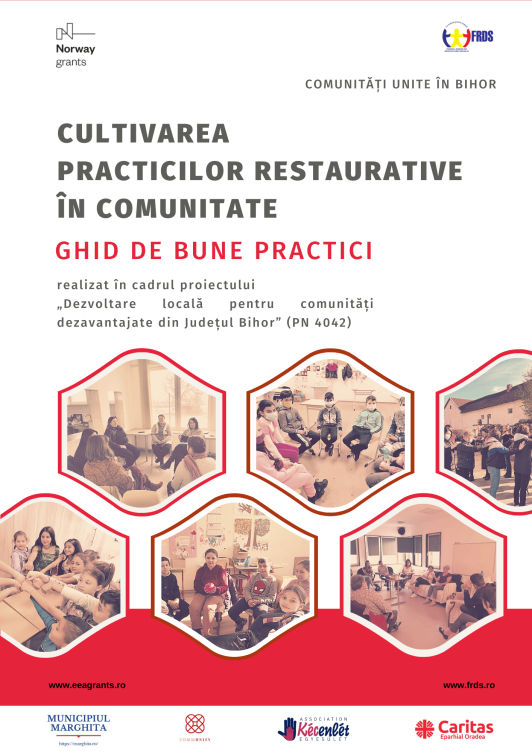The Resource Centers
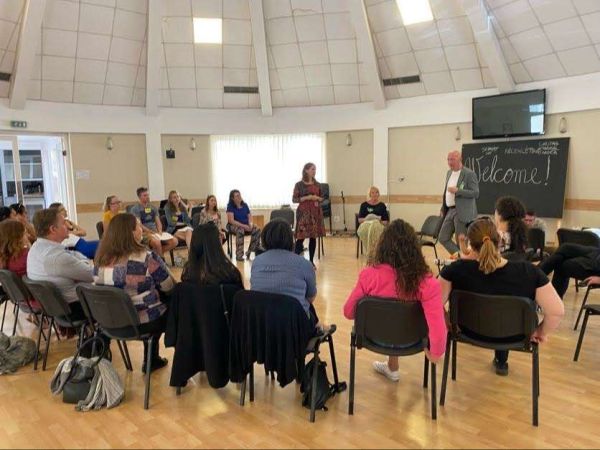
The Resource Centers
The Restorative Practices Resource Centres in Cheț (Marghita Municipality) and Ioaniș (Finiș Commune) focus on building and maintaining healthy relationships within the communities in which they operate and at their workplace. Our commitment to creating a positive and harmonious environment extends beyond our beneficiaries to our team members. We believe that a well-trained and motivated team is the foundation of providing enjoyable services and experiences. Restorative practices emphasize open communication, empathy and accountability. Although conflicts may arise, the way in which we address them defines the atmosphere that is created on the long term. We believe in resolving issues in a way that promotes growth, understanding and healing for all parties involved.
Constant training for continuous improvement:
Our team members participate in ongoing training sessions designed to develop their skills in restorative practices. A range of topics are covered, including conflict resolution, active listening, emotional intelligence and effective communication, as well as a range of other topics, with the help of our Norwegian partner (preventing domestic violence, addressing trauma, etc.). In this way, we prepare our teams to handle any situation that may arise with professionalism and compassion.
Restorative practices
The integrated program within the project includes education, employment and socio-medical services, using the model of restorative practices throughout these activities. The purpose of developing this model in the Municipality of Marghita, respectively in Finiș Commune is multiple:
• improving the quality of social and educational services in the targeted communities to increase access as well as the level of confidence and satisfaction of disadvantaged groups with the social services they benefit from within the community.
• building healthy communities,
• increase social capital,
• decrease crime and anti-social behaviour,
• repairing damage and improving, restoring relationships,
• contribution to changing the mentality and approach to real-life situations in the community
• reducing discrimination and integrating vulnerable groups, respectively respecting the principle of desegregation.
We invite you to watch the introductory video on restorative practices (IIRP).
More details about restorative practices is offered by the International Institute for Restorative Practices.
Scientific conference May 12-13, 2023
The scientific conference on the challenges of applying restorative practices in education, dedicated to people interested and trained in the field of restorative practices took place on 12-13 May 2023, at Posticum, Strada Teiului 26, Oradea. The aim of the event was to present a perspective on the application of restorative practices in education, to exchange experiences, but also to spend a pleasant time together.
The event was a real success, thank you to all participants for their attendance and involvement!
The project team
United Communities in Bihor






















International Scientific Conference, 24-25 November 2023
The second International Scientific Conference, Restorative Practices - an exercise in building resilience in communities, dedicated to people interested in the topic and those trained in the field of restorative practices, took place on 24-25 November 2023 in Oradea, at FIX Makerspace.
Our event brought together passionates, experts and people curious about exploring and sharing insights regarding restorative practices, developing a space for learning and collaboration.
Our special guests and speakers brought fresh perspectives and inspiration, contributing to insightful and thought-provoking discussions and facilitating the sharing of experiences in restorative practices.
Thank you for being part of this extraordinary journey of restorative practices. We look forward to meeting again in the future!














Presentations on social inclusion
On 17/10/2023, our colleague Andra Berce had the privilege to present her experience gained during the study visit organized by RSDF to the Council of Europe, at Partium Christian University from Oradea. The audience included the project team and a group of students and teachers from 4 universities, within the ERASMUS BIP program. Here are links via COE to some of the valuable resources discovered at the Council of Europe (some available in several languages):
- Compass: Manual for Human Rights Education with Young People
- COMPASITO - Manual on human rights education for children
- Right to Remember - A Handbook for Education with Young People on the Roma Genocide
- Mirrors - Manual on combating antigypsyism through human rights education
- Romacted - A manual for development of local resources, joint action and empowerment of Roma communities
- ROMED Trainer’s Handbook - European training programme on intercultural mediation for Roma communities
- All Di fferent – All Equal education pack - Ideas, resources, methods and activities for non-formal intercultural education with young people and adults
- HELP online course on Violence against Women
- Publications on the rights of persons with disabilities
- The work of the Roma and Travellers Team
- www.coe.int - The Council of Europe
- https://www.echr.coe.int/ - The European Court of Human Rights - Curtea Europeană a Drepturilor Omului (CEDO)
- hudoc.echr.coe.int - A database of various cases ruled at the European Court of Human Rights
The meeting also included a presentation of the work of Kécenlét Association by its president, Mike Pál, and social worker Gergely Gabriella. Last but not least, some elements of the restorative approach were presented by Dr. Krisztina Bernath.
Valuable resources were shared, the project United Communities in Bihor was presented and interesting discussions on the social inclusion of Roma, minorities and other vulnerable groups were animated by games. The meeting was inspiring for all participants and hopefully this is another important step towards a more equitable and inclusive society.












Ghid de bune practici
Suntem încântați să vă prezentăm Ghidul de Bune Practici, un instrument valoros pentru cei care doresc să își consolideze eforturile în aplicarea abordării restaurative pentru îmbunătățirea calității vieții în comunitate. Acest ghid reflectă experiența noastră și învățămintele cheie obținute în timpul implementării practicilor restaurative în comunitățile Cheț și Finiș și este destinat să servească drept resursă valoroasă pentru alte organizații și comunități care doresc să adopte această abordare. De asemenea, am cules povești de succes în aplicarea practicilor restaurative de la colaboratori valoroși din țară, cărora le mulțumim pe acestă cale pentru contribuția lor.
Obiectivele ghidului:
- Să ofere o înțelegere a principiilor și valorilor abordării restaurative.
- Să ofere orientări practice pentru implementarea practicilor restaurative în diverse contexte comunitare.
- Să ofere exemple concrete de bune practici și îmbunătățirea relațiilor în comunitate.
În continuare, suntem interesați să aflăm și să împărtășim experiențele voastre în implementarea practicilor restaurative în comunitățile voastre. Nu ezitați să ne contactați pentru a contribui la consolidarea acestui efort comun pentru o comunitate mai armonioasă și mai inclusivă.
